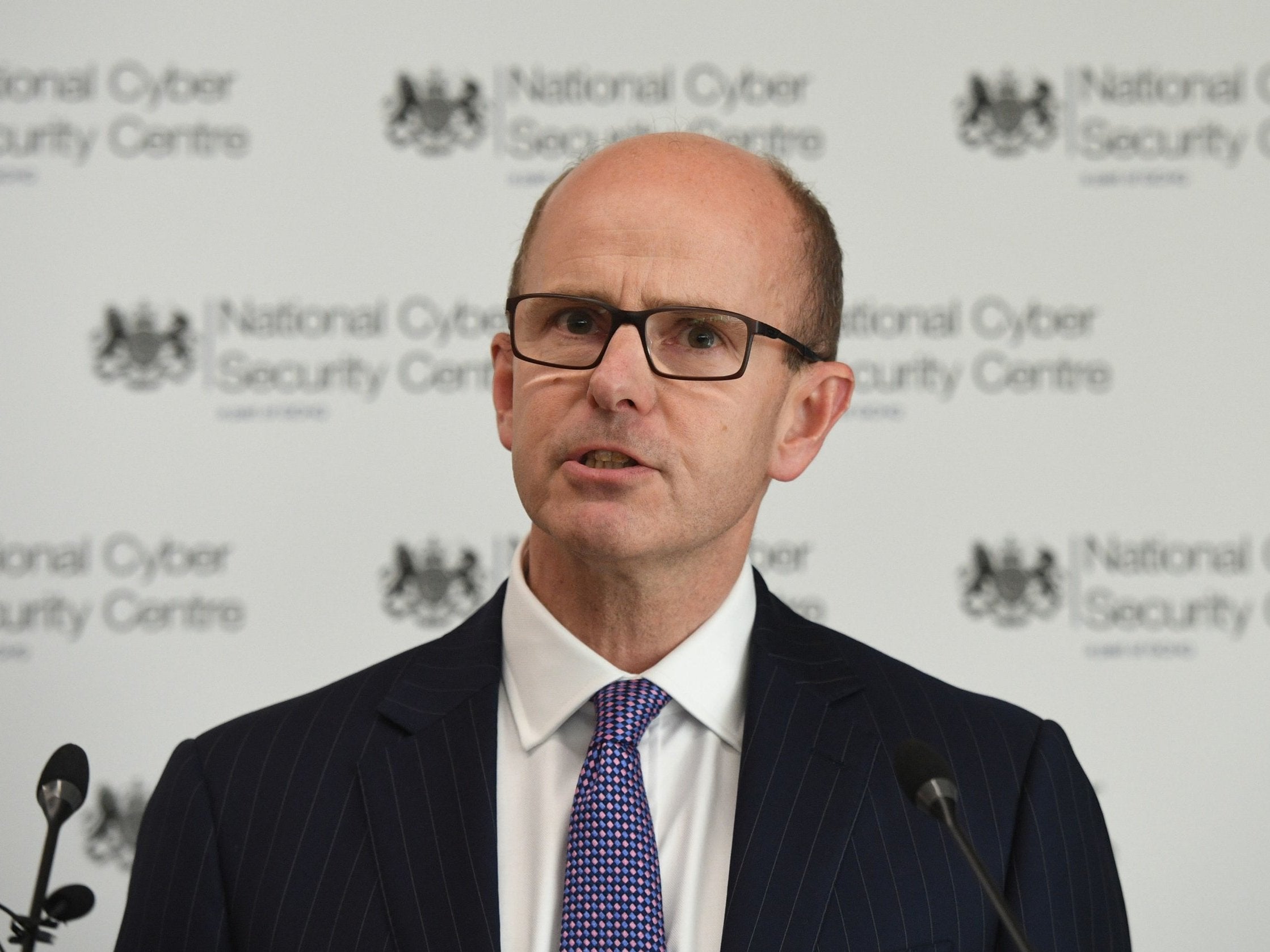UK spy chief warns of possible threat to Britain from Chinese tech companies
'Hugely complex strategic challenge will span the next few decades ... probably our whole professional lives'

Your support helps us to tell the story
From reproductive rights to climate change to Big Tech, The Independent is on the ground when the story is developing. Whether it's investigating the financials of Elon Musk's pro-Trump PAC or producing our latest documentary, 'The A Word', which shines a light on the American women fighting for reproductive rights, we know how important it is to parse out the facts from the messaging.
At such a critical moment in US history, we need reporters on the ground. Your donation allows us to keep sending journalists to speak to both sides of the story.
The Independent is trusted by Americans across the entire political spectrum. And unlike many other quality news outlets, we choose not to lock Americans out of our reporting and analysis with paywalls. We believe quality journalism should be available to everyone, paid for by those who can afford it.
Your support makes all the difference.The head of GCHQ has warned of the potential threat to Britain’s national security of allowing Chinese technology firms to become involved in the UK telecoms network.
Jeremy Fleming will say the drive by Chinese companies to become involved in Western communications represents “a hugely complex technological challenge”.
In a wide-ranging speech, he will also emphasise the importance of the UK possessing the offensive capability to “project” cyber power to “deny, disrupt or degrade” in the event of hostile action.
The spy chief is expected to say: “We have to understand the opportunities and threats from China’s technological offer. Understand the global nature of supply chains and service provision irrespective of the flag of the supplier.
“Take a clear view on the implications of China’s technological acquisition strategy in the West.
“And help our governments decide which parts of this expansion can be embraced, which need risk management, and which will always need a sovereign, or allied, solution.
“It’s a hugely complex strategic challenge which will span the next few decades ... probably our whole professional lives. How we deal with it will be crucial for prosperity and security way beyond 5G contracts.”
His comments come after US secretary of state Mike Pompeo insisted the US would not provide top-secret intelligence to countries which use equipment from Chinese tech giant Huawei in their core networks.
Mr Pompeo told Fox Business: “If a country adopts this and puts it in some of their critical information systems, we won’t be able to share information with them.”
Last year, MI6 chief Alex Younger expressed his concern about the potential involvement of Huawei in the UK’s 5G mobile network. The company has denied it has any links to Chinese spying operations.
In his address to government, military and industry figures from across southeast Asia, Mr Fleming will say no decisions have been taken on 5G, with a government review due to report in the spring.
However he will say it is essential the potential risks of allowing Chinese firms to become involved need to be properly understood.
He will say: ”It’s a hugely complex strategic challenge which will span the next few decades ... probably our whole professional lives.
“How we deal with it will be crucial for prosperity and security way beyond 5G contracts.”
With around half the 1,100 incidents handled by the UK National Cyber Security Centre (NCSC) over the last two years involving state actors, Mr Fleming will say there is a need for an internationally agreed system of ethics and standards for operating in cyberspace.
“Some of the behaviour we’ve seen from certain states or criminals is clearly wrong in any circumstance,” he will say. “An attack on a hospital’s IT, or on a country’s electoral system will always require sanction.
“Unchecked, we’re heading for an even less governed space where rights and wrongs are not automatically recognised and where acceptable behaviours are not a given.
Ultimately, he will say that Britain’s continuing security in cyberspace will depend on its ability to act together with international allies.
He is expected to add: “Our future security will be guaranteed not by the quality of our coding, the design of our silicon, or the cunning of our cyber operators – but by the bonds that tie us together and the relationships that give us confidence to act decisively against common threats.”
Additional reporting by PA
Join our commenting forum
Join thought-provoking conversations, follow other Independent readers and see their replies
Comments